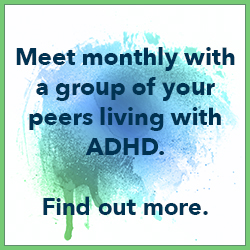The exact cause of
ADHD physical activity benefits remains unclear, but research suggests that a
combination of genetic, environmental, and neurological factors may contribute to its development. Studies indicate that ADHD tends to run in families, highlighting a genetic component. Furthermore, exposure to certain environmental factors during pregnancy, such as tobacco smoke and alcohol, has been linked to an increased risk of developing ADHD in children.
The Benefits of Physical Activity
Active lifestyles significantly support ADHD symptom management. Frequent physical activity improves mood, focus, and reduces hyperactivity in ADHD individuals. Engaging in activities such as walking, swimming, or team sports can provide an outlet for excess energy while promoting overall well-being. Motivating and fun physical activities make it easier for ADHD individuals to stay active.
Schools play a crucial role in supporting students with ADHD. Educators are encouraged to implement individualized education plans (IEPs) or 504 plans to create an accommodating learning environment. Simple adjustments, such as providing a quiet space for tests or allowing extra time for assignments, can make a significant difference in a student’s academic success.
The Role of Mindfulness in Education
Schools and institutions are also recognizing the benefits of mindfulness for students with ADHD. Mindfulness training is being added to school programs, teaching ADHD students focus techniques. This shift is a promising development, as it equips young individuals with valuable tools to navigate their challenges both in and out of the classroom.
Building ADHD Support Systems
Building a robust ADHD support system helps reduce stress and foster connection. Shared experiences within ADHD communities build empathy and reduce loneliness. ADHD support forums offer platforms for sharing strategies, advice, and encouragement. Family involvement fosters understanding and creates a home environment supportive of ADHD needs.
In recent years, growing attention has been paid to Attention Deficit Hyperactivity Disorder (ADHD) and its impact on individuals' ability to focus. A condition that affects millions worldwide, ADHD is characterized by symptoms such as inattention, hyperactivity, and impulsiveness. However, recent studies and innovative strategies are shedding light on effective methods to enhance focus and productivity for those living with ADHD.
Society's perception of ADHD continues to evolve, and ongoing research aims to uncover more about its complexities. By fostering a supportive environment and promoting awareness, we can help those with ADHD thrive. Families, educators, and healthcare providers play essential roles in creating strategies that cater to the unique needs of individuals with ADHD, ultimately contributing to their overall well-being and success.

Practical Mindfulness for ADHD
Daily mindfulness practices are easy to implement and highly effective for ADHD management. Mindful activities like yoga and tai chi are excellent for children with ADHD. Mindful physical activities improve health and teach ADHD-friendly focus techniques. "Mindfulness doesn’t have to be time-consuming or complicated. Even a few minutes of focused breathing or a short walk in nature can make a difference," Dr. Thompson adds.
Attention Deficit Hyperactivity Disorder (ADHD) is a neurodevelopmental disorder that affects millions of children and adults worldwide. Characterized by symptoms of inattention, hyperactivity, and impulsivity, ADHD can significantly impact daily life, academic performance, and social interactions. Despite its prevalence, ADHD remains shrouded in misconceptions and stigma, leading to misunderstandings about its nature and treatment.
Attention-Deficit/Hyperactivity Disorder, commonly known as ADHD, affects millions of children and adults worldwide. Characterized by persistent patterns of inattention, hyperactivity, and impulsivity, ADHD is a neurodevelopmental disorder that can significantly impact daily functioning and quality of life. As awareness of ADHD grows, so does the need for a comprehensive understanding of its symptoms, causes, and available treatments.
Another myth is that ADHD is overdiagnosed and that many children are unfairly labeled. While it is true that the diagnosis of ADHD has increased in recent years, this trend is largely attributed to heightened awareness and improved diagnostic criteria. Experts emphasize that a proper diagnosis involves a comprehensive evaluation by a qualified professional who considers the individual’s history, behavior across different settings, and input from caregivers and teachers.
Additionally, the rise of technology has introduced various tools aimed at assisting individuals with ADHD. Apps designed for time management, organization, and task tracking have become increasingly popular. These digital solutions often incorporate gamification—turning tasks into games to motivate users and sustain their attention. One such app, "FocusMate," connects users with accountability partners to work alongside them in real-time, creating a virtual coworking environment that promotes focus and productivity.